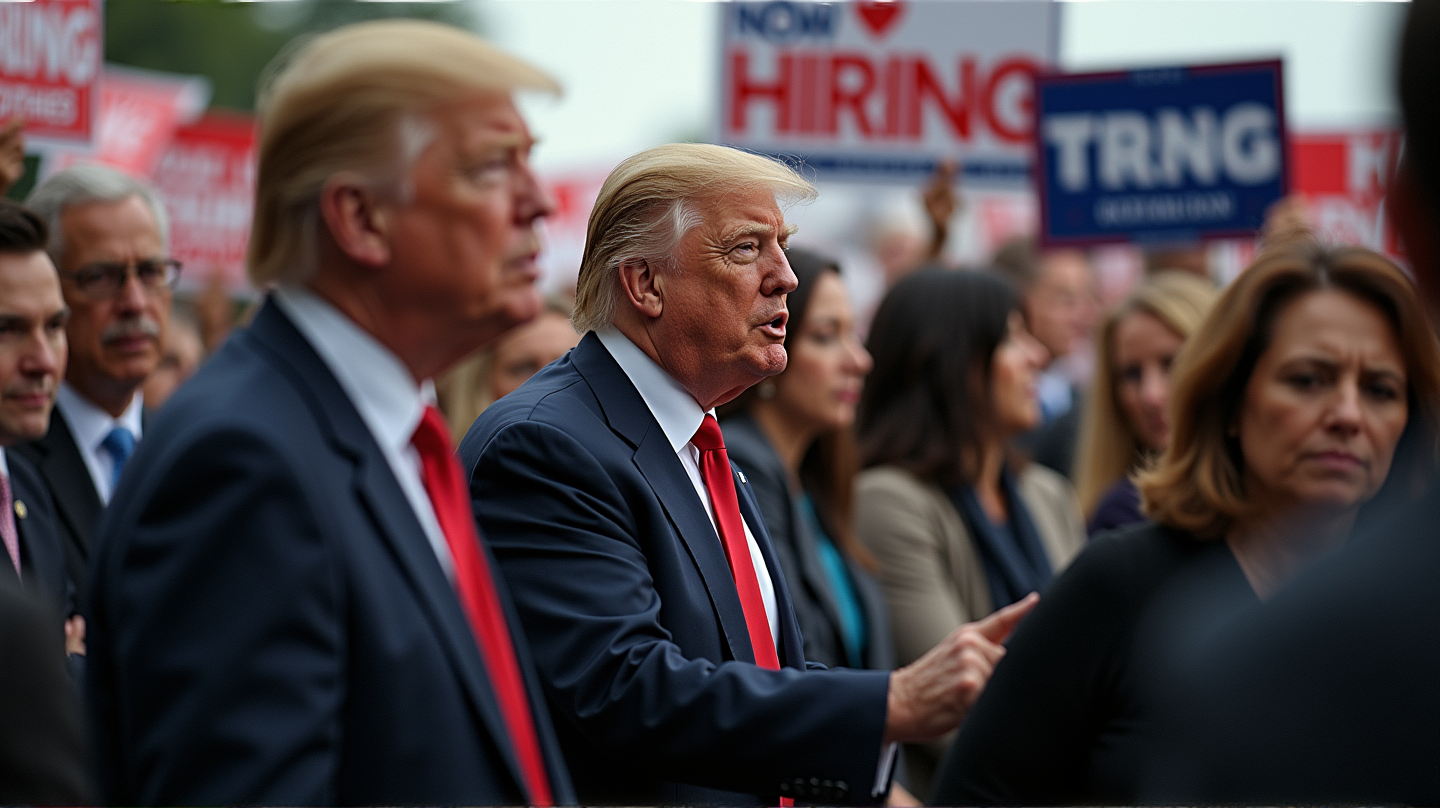Economic Promises Unfulfilled: Black Voters and Trump's Political Gamble
Despite economic pledges, Trump faces risks as job loss rates among Black Americans rise since his 2024 reelection.

A Fragile Economy and Rising Unemployment
In January 2025, Donald Trump resumed his position in the Oval Office with a pledging commitment to resuscitate the American economy. However, contrary to his economic assurances during the 2024 campaign, the financial situation for Black Americans has notably declined. Recent data reveals that Black unemployment has surged from 6.2% to 7.5%, marking its highest point since 2021, while Black homeownership has fallen to unprecedented lows. These statistics highlight a critical and widening economic gap.
The Economic Drift: Job Losses and Broken Promises
President Trump’s platform promised economic revival by targeting border crossings and imposing tariffs on foreign factories. Yet, these measures have seemingly failed to deliver on the promise. The median income for Black households saw a notable reduction of 3.3% last year. As stated in AP News, “The African American population is experiencing challenges like never before,” a sentiment echoed in Trump’s own words during a 2024 rally.
A Perceived Discrimination Impact
The ambiance within the Black community hints at dissatisfaction, with some leaders interpreting Trump’s policies as indirectly discriminatory based on race. Federal layoffs, which predominantly affected Black employees, underscore this perception. Meanwhile, Trump’s proposals to deploy National Guard units to cities under Black leadership further magnify concerns about political strategies undermining Black governance.
Political and Economic Repercussions
A number of Black voters, historically the backbone of the Democratic Party, observe a diminished improvement under Trump’s governance. This disenchantment is further fueled by Trump’s emphasis on immigration reform and federal downsizing over tangible economic advancements for the middle class.
The Shift in Black Voter Sentiment
Though Black voters made up 16% of Trump’s support in 2024, doubling from 2020, their evolving disillusionment poses a potential political predicament for the Republican establishment. The emphasis on immediate economic relief and the failure to address pressing concerns might detract from Trump’s Republican base ahead of the forthcoming elections.
Navigating the Political Landscape
As Trump grapples with the fallout from unmet economic expectations, he must navigate the precarious waters of public perception and engage sincerely with the core issues confronting Black Americans. Political analysts, like Alexsis Rodgers of the Black to the Future Action Fund, stress that “the path toward economic inclusion is fraught with political missteps that could jeopardize future victories.”
These circumstances spotlight a crucial moment in the trajectory of Trump’s administration, urging a reflective reevaluation of economic policies that more inclusively address the needs of Black Americans. The challenge remains: can Trump regain trust and deliver on promises, or will the increasing economic divide define his presidential legacy?





